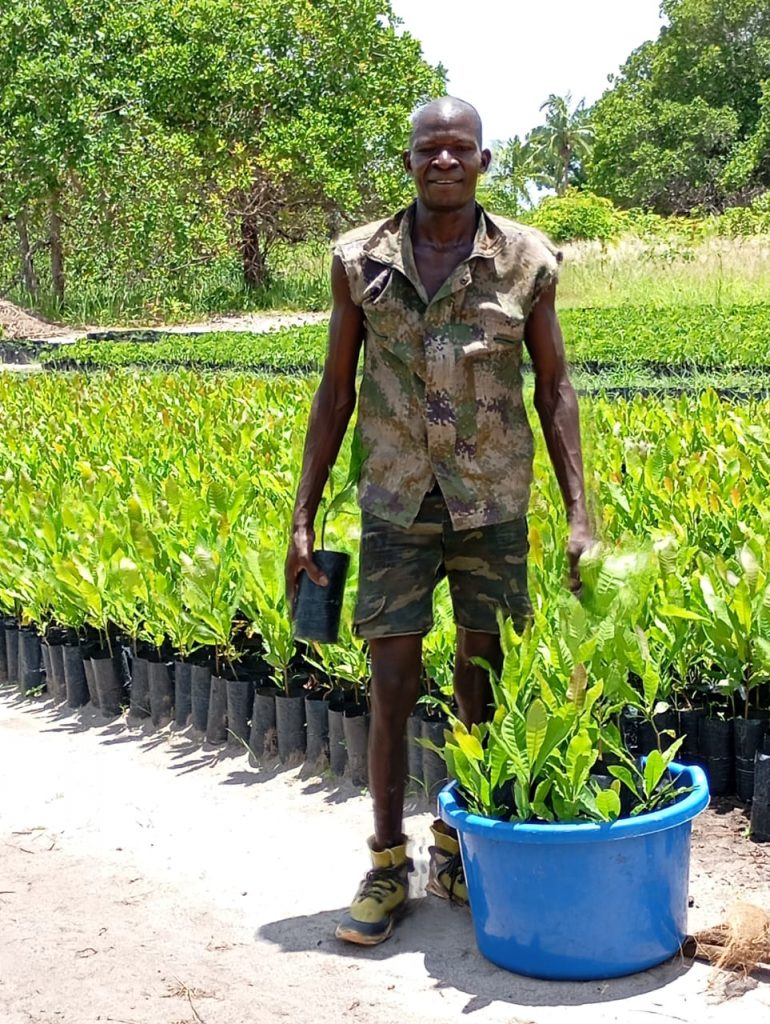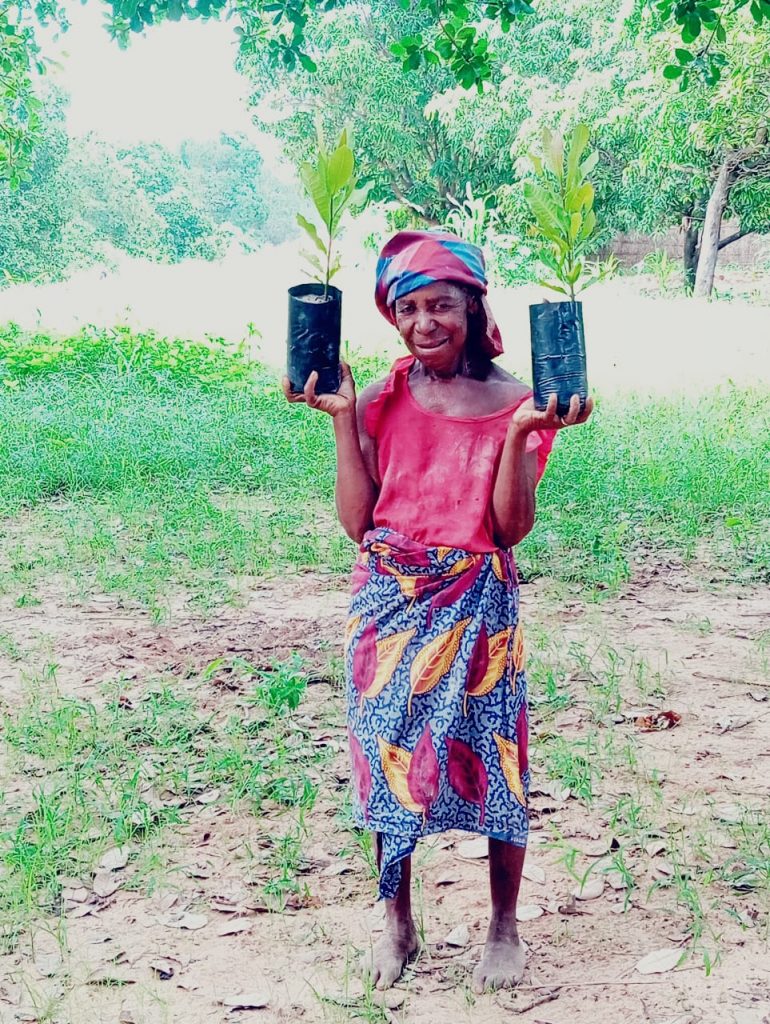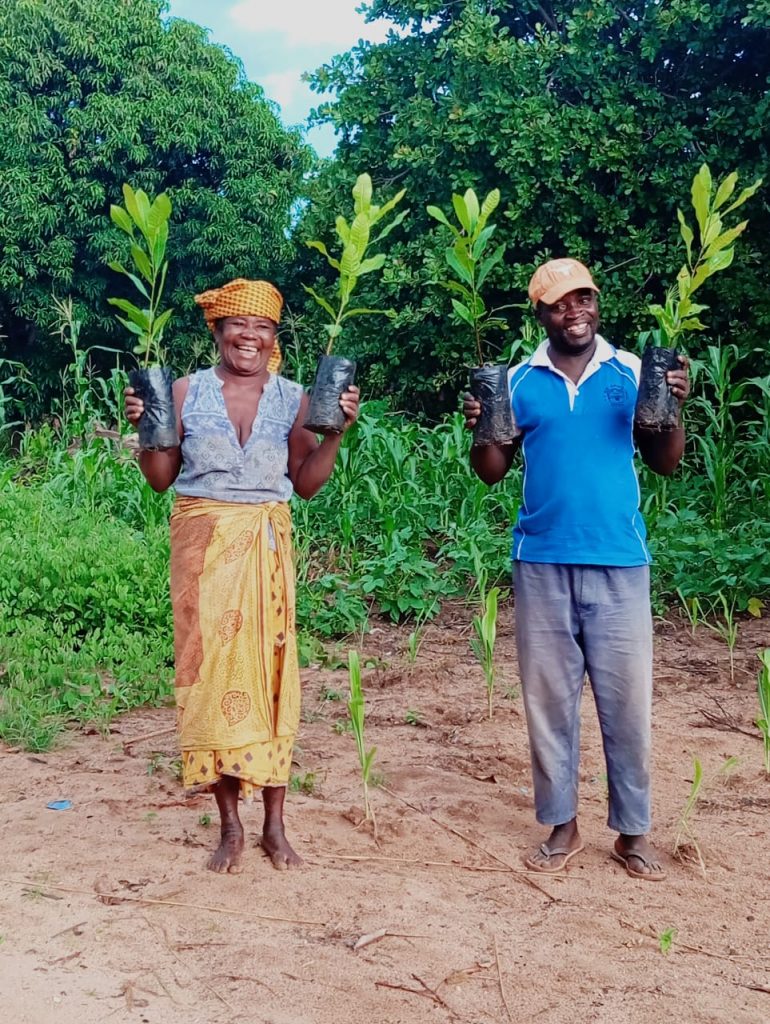Strengthening the cashew supply chain in Nampula, Mozambique
The Africa Cashew Market size is estimated at USD 0.85 billion in 2025, and is expected to reach USD 1.02 billion by 2030, at a Compound Annual Growth Rate of 3.67% during the forecast period (2025-2030). As a high-value cash crop with a strong international market demand, cashew farming presents a lucrative opportunity for smallholder farmers in Sub-Saharan Africa, often providing higher income than traditional food crops like maize, beans, and peas.
One of EFF’s core missions is to improve the livelihoods of farming families through cashew production in Sub-Saharan Africa. By enhancing incomes, we aim to improve housing conditions, ensure more rural children have access to quality education, and better healthcare and nutrition for cashew-growing communities.
To enhance climate resilience and increase the income of 5,000 smallholder farmers, we have partnered with the Africa Agriculture and Trade Investment Fund (AATIF) and USAID through the Feed the Future Market Systems Partnerships (MSP) program to support ETG’s Korosho Mozambique Ltd. in strengthening its cashew supply chain in Nampula province, Mozambique through the rehabilitation and planting of cashew trees.
Capacity building and sustainability
A key element of this initiative is the capacity-building of Korosho Mozambique Ltd.’s resident team through a comprehensive Training of Trainers (ToT) program. This program covers sustainable and scalable agricultural practices, as well as farmer group trainings on cashew production, including:
- Good Agricultural Practices (GAP).
- Agroforestry techniques.
- Post-harvest handling.
- Rainforest Alliance certification requirements, with a strong emphasis on sustainability and environmental stewardship.
- Climate-smart agricultural practices to mitigate risks and optimize productivity.



Project milestones and achievements
- Mapping exercise: Conducted to assess the demand for cashew seedlings, evaluate available resources (land, water, and labor), and secure buy-in from communities and local authorities for establishing community-based cashew nurseries and demonstration plots.
- Community-based nurseries: Established nine nurseries with over 250,000 seedlings propagated.
- Employment generation: Created job opportunities for 36 individuals, including 17 women working at these community-based nurseries.
- Demonstration plots: Two plots (each 0.5 hectares) have been prepared to facilitate hands-on learning for nursery operators, lead farmers, and community members. Training includes nursery establishment, seedling propagation, and pest and disease management. To date 900 individuals have been trained at these demo plots, with a 28% representation of women.
- Seedling distribution: Over 5,000 farmers have received cashew seedlings in alignment with the February 2025 planting season.
- Business model development: Supported communities in developing a business model to transform the nurseries into sustainable, income-generating ventures for local residents.
Hear directly from our farmers on the projects impact
This initiative goes beyond simply planting trees. It focuses on building capacity, promoting sustainable practices, and creating long-term economic opportunities for farming families. By strengthening the cashew supply chain in Nampula, this partnership is not only contributing to the growth of the global cashew market but also laying the foundation for improved livelihoods, enhanced climate resilience, and brighter futures for rural communities in Mozambique.
